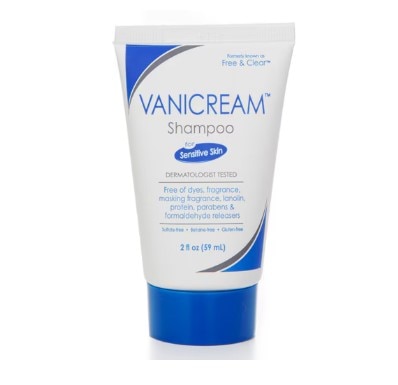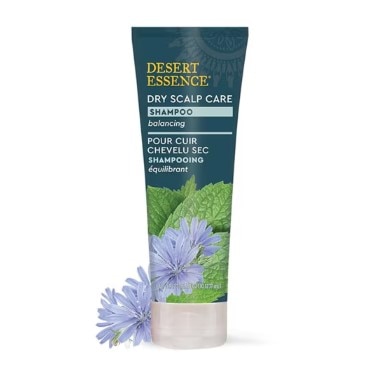You’ve probably heard that diabetes can cause complications with your heart, nerves and kidneys, but did you know it can also affect your hair?
The average person loses 50-100 strands of hair daily, but some people with diabetes may notice their hair becoming thinner over time or may experience even more hair loss than usual. This article will explain how diabetes and hair loss could be connected, what can cause it and what you can do about it.
Can Diabetes Cause Hair Loss?
Although hair loss is not the most common issue associated with diabetes, it can happen. When people with diabetes see changes in their hair, it may be the result of the impacts that diabetes can have on their bodies. Let’s take a deeper look at some possible causes.
Problems with blood flow
When blood sugar levels are elevated over time, it can damage the small blood vessels in the body. You can think of the damaged blood vessels like tiny roads getting damaged and making it hard for things to travel through them.
Our hair needs food and oxygen to grow strong and healthy. These things travel in our blood. If the blood vessels are damaged, hair follicles may not get enough of what they need to grow properly. When hair follicles don’t get enough food and oxygen, the hair can become weak and fall out more easily. It might also appear thinner.
Changes in hormones
Diabetes can impact hormones, which play a part in how hair grows. If hormone levels are out of whack, they can mess up the normal cycle of hair growth, causing more hair to fall out.
Inflammation
People with diabetes sometimes experience inflammation inside their bodies. This inflammation can also impact the hair follicles. When the hair follicles are not healthy, they may not grow hair as well, leading to thinning.
Medications
Some medications that people with diabetes take can cause hair loss as a possible side effect. Examples are certain medications for blood pressure, depression and high cholesterol. Not everyone who takes these medications will experience hair loss.
Stress
Living with diabetes can be stressful. When you are highly stressed, it can cause a large number of hair follicles to enter a resting phase at the same time. A few months later, that hair can start to fall out. This condition is known as telogen effluvium, and it is typically temporary.
Nutrient deficiencies
Sometimes, the medications you take can interfere with your body’s ability to utilize specific essential nutrients. Additionally, if you’re not consuming a balanced diet, you may not be getting enough of these nutrients.
Essential nutrients like iron, zinc and biotin are crucial for promoting healthy hair growth. If you don’t consume enough of these through your diet or supplements, your hair can become weak and prone to falling out.
Finding Out Why You’re Losing Hair
If you have diabetes and notice that you’re losing more hair than usual, it’s getting thinner or the texture is changing, reach out to your doctor right away. Finding the problem early can help you start managing it sooner.
To find out why you’re losing hair, your doctor will likely ask you about your diabetes, how you manage it, the medications you take, your diet, and if anyone else in your family has experienced hair loss. Then they might examine your scalp to assess the extent of hair loss and identify any other potential issues. They may require a blood sample to check for other health issues or to determine if you are deficient in specific vitamins or minerals. If they can’t figure out why you’re losing hair, a scalp biopsy may be needed to investigate further.
How to Manage and Treat Hair Loss with Diabetes
If you have diabetes and are experiencing hair loss, there are steps you can take to help manage it such as:
- The most important thing to do is to proactively manage your blood sugar. This helps protect your blood vessels, reduces inflammation and promotes overall health, which can also benefit your hair.
- Aim to eat a balanced diet with whole grains, lean protein, fruits and vegetables. Ensure you are consuming foods rich in the vitamins and minerals your hair needs, such as iron, zinc, biotin, vitamin D and B vitamins. If your doctor determines that you are deficient in any specific nutrients, they may recommend taking supplements. It is also important to drink plenty of water daily to avoid dehydration.
- Being active helps you maintain stable blood sugar levels and helps your body use insulin more effectively. Aim to exercise regularly, ideally for at least 150 minutes per week.
- Take your diabetes medicines as prescribed. Do not change or stop taking them without consulting your doctor first.
- Besides managing your diabetes, there are things you can do to help with hair loss directly as well. Certain over-the-counter or prescription medications, such as Minoxidil cream, Finasteride and Corticosteroids, are often used to help treat hair loss.
- Incorporate yoga, deep breathing or quiet time into your routine to help manage stress.
- Try to avoid using strong shampoos, hair dyes, perms or hot tools like hair dryers and straighteners too frequently, as they can cause damage to your hair. Be gentle when brushing your hair and avoid tight hairstyles, such as ponytails or braids.
Dealing With Hair Loss and Diabetes
Losing hair can be hard, and feeling upset about it is normal. Joining support groups or online communities for people with diabetes or hair loss can help you connect with others who understand what you’re going through. A therapist can help you deal with the feelings and stress that can come with hair loss or chronic conditions like diabetes.
Hair coverings such as wigs, hairpieces, scarves and hats can help you feel more comfortable with your appearance. You can also try a different haircut or styling products to help your hair look fuller.
Lastly, remember that your hair does not define who you are. Make sure you are doing things that make you feel good like enjoying your favorite hobbies and spending time with people you care about.
In Summary
Diabetes and hair loss can be connected in several ways, from problems with blood flow and hormones to inflammation, medications, stress and lack of specific nutrients in the diet. If you are dealing with hair loss and diabetes, know that there is hope. Don’t be afraid to ask for help and explore your options.
By taking good care of your diabetes and working with your healthcare team to find the right treatments and lifestyle changes, you can make a significant difference.




